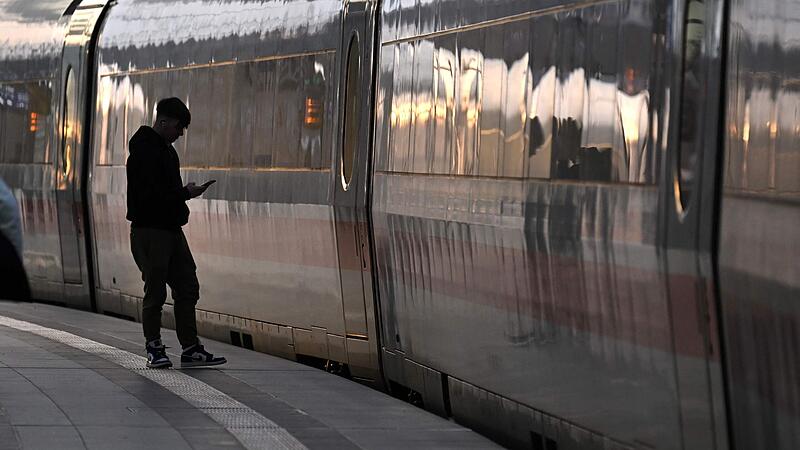Image: AFP/INA FASSBENDER
In Germany, rail travelers in the run-up to Christmas have to be prepared for train cancellations and delays on the second weekend in Advent. The train drivers’ union GDL announced on Wednesday a nationwide strike from Thursday to Friday evening – this is also likely to lead to disruptions in connections between Austria and Germany. The strike is scheduled to start at 6:00 p.m. in freight traffic and at 10:00 p.m. in passenger traffic. It will therefore end on Friday evening at 10:00 p.m.
“We assume that large parts of our connections to Germany cannot be operated,” said an ÖBB spokesman. We are now in coordination with our German colleagues to determine which parts will be on strike. According to the spokesman, more detailed information will be available by Thursday afternoon.
In addition to Deutsche Bahn, the strike also applies to the regional train operators Transdev, AKN Eisenbahn and City-Bahn Chemnitz. “The employers are stonewalling everywhere and are not prepared to give the employees the appreciation and recognition they deserve for the work they have done,” said the GDL, justifying the strike. Railway human resources director Martin Seiler called the walkout unnecessary and selfish. It ruins the Advent weekend for millions of people.
No strike on Christmas holidays
At the end of November, the GDL broke off negotiations with the railway and announced another strike. However, she has not yet mentioned the time. At the same time, the GDL has initiated a ballot for an indefinite strike, the result of which should be available before Christmas. The GDL does not want to strike over the Christmas period, but has not defined the period more precisely.
Railway negotiator Seiler was disappointed: “The train drivers’ union is spoiling the second weekend of Advent for millions of uninvolved people.” A strike so soon after the onset of winter and so shortly before the timetable change is irresponsible and selfish. Instead of negotiating and facing reality, the train drivers’ union is striking for demands that cannot be met, said Seiler. “This is absolutely unnecessary.”
Demands far apart
The GDL is calling for a reduction in working hours from 38 to 35 hours per week for shift workers, plus 555 euros more per month and an inflation compensation bonus of 3,000 euros. The railway offered eleven percent more wages and salaries with a term of the collective agreement of 32 months. The GDL rejected this as completely inadequate.
The train drivers’ union had already started a 20-hour strike at Deutsche Bahn in mid-November. Above all, the railway rejects the requested reduction in working hours due to the shortage of workers. If the GDL requirement were met, 10,000 new employees would have to be hired, which is impossible in the current labor market.
An extension of the GDL’s collective agreements to other sectors is also rejected. The core area of the GDL is locomotive drivers and train crew. According to Deutsche Bahn, the GDL is negotiating this way for a total of 10,000 employees. This is also legally defined as the GDL does not have a majority in other railway companies. The larger railway and transport union (EVG) negotiated for this.
My themes
For your saved topics were
new articles found.

info By clicking on the icon you can add the keyword to your topics.
info
By clicking on the icon you open your “my topics” page. They have of 15 keywords saved and would have to remove keywords.
info By clicking on the icon you can remove the keyword from your topics.
Add the topic to your topics.
Source: Nachrichten




